Man About Town
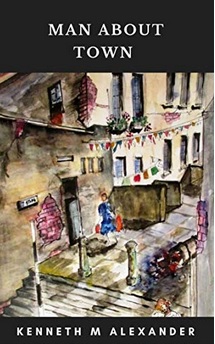
Kenneth M Alexander, husband, father, architect, artist, and social justice activist is many things to many people, but he is firstly true to himself, his voice, his craft and his message. In this compelling , and often nostalgic, autobiography, Kenny chronicles his personal journey through time, and local spaces, predominantly on the Cape Flats.There are moments of mirth, and tender remembrances of places that are no more, such as the Kismet Bioscope, for example, coupled with the sobering realities of living, for the most part, during a time that was fraught for all South Africans of colour, during apartheid.Kenny does not shy away from calling a spade a spade, which is perhaps one of his most endearing, and infuriating, qualities. Love him or hate him, he remains a tour de force. You can contact the author at theartistinathlone AT gmail.com
Disrupting Denial
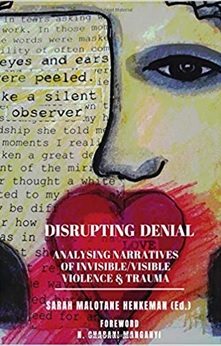
This book combines practitioner scholarship with the voices of 42 contributors from various walks of life, depicting different experiences with a common thread, to co-produce knowledge about the impact of oppression(s) over time. It is a powerful read that flattens the artificial boundaries between lay and academic knowledge by putting an analytical tool – the structure of invisible/visible violence – in the hands of any person who is interested to understand the invisible mechanisms that produce high levels of visible violence, trauma and denial in society. More than two decades of practice and action research with participants from South Africa, and other countries on the continents of Africa, Asia, Latin America and Northern Europe form the foundation of Disrupting Denial. This book provides the reader with an adaptable framework within which to analyse, understand, and act on invisible/visible violence, trauma and denial in society.
Journey of Hope through Change
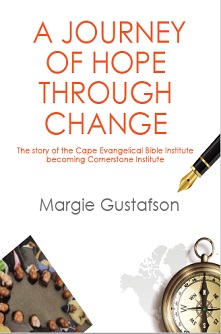
The story of Cornerstone is one of courage, resistance, and resilience. It is a story of men and women who through obedience to God, and many times great sacrifice, were able to glorify God through the influence they had on students who would go on to be difference-makers, not only in South Africa and the continent of Africa, but indeed throughout the world. But above all it is a story of hope – the belief that no matter our circumstances, or the context of the world around us, things can and will get better. The Cornerstone story inspires us all to rediscover our own courage to think beyond the present, dream of great things, and imagine the impossible. It is a story that must be told.
Little Flower School: A legacy built on stone
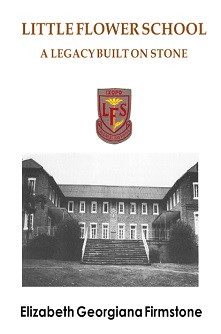
The book is about the remarkable legacy of a school in the rural village of Ixopo, Kwazulu-Natal.
In 1923, the Sisters of the Precious Blood erected an iron shanty mission school that housed eight
pupils at “La Trappe”, growing to become state-aided in 1929. The name “Little Flower School”, was
in honour of St Therese of Lisieux, Patroness of the Missionas, who alos inspired the motto “Sola Nobilitas Virtus”, meaning “Virtue is true nobility.”
Strategy is E.A.S.I by Pierre Fabe, a strategy book that helps demystify the implementing of strategy in achieving goals whether personal or business.
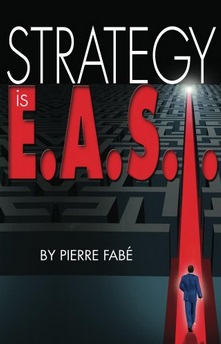
In this non-fiction book, Pierre Fabe shoots straight from the hip by deconstructing strategy in a no-nonsense fashion. He puts it all back together again in a lucid fashion thus offering readers the opportunity to finally come to terms with what strategy is and isn’t. If you are looking for answers on exactly what strategy is and how to implement strategy, then this book is for you.
Waar is ons nou?

“Waar is ons nou?” is geskryf na jare se wonder oor hoe ander mense wat as kinders na Suid-Afrika gekom het, die ervaring beleef het, veral gesien in die lig dat soveel Suid-Afrikaners se kinders en kleinkinders die afgelope paar jare ge-emigreer het. Dit wil voorkom asof daar vroeër oor die algemeen nie veel aandag aan die belewinge van die kinders van emigrante gegee is nie. Op hulle beurt kon hulle gemoedstoestande en moontlike innerlike verdeeldheid tog ook weer ‘n invloed op hulle lewe en eie gesinne) gehad het. Dit het die vraag laat ontstaan wat emigrante kinders se verliese en aanpassings was.
Het dit ‘n soort kultuurloosheid teweeg gebring – ‘n gebrek aan tradisies en rituele wat prysgegee word en nie noodwendig met nuwe tradisies en rituele vervang is nie? Is die nageslag van dié emigrante kinders bewus van wie en wat hulle ouers oorspronklik was?
The world has had enough by Ed Razzano, a series of short stories satirizing the world of espionage particularly the most famous asset of all…the name is uhm Ford, Rex Ford…
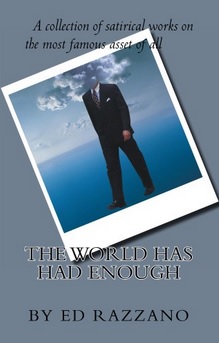
The real villains have threatened all cultures and we have been fortunate to survive these and in fact during a brief period in history (in keeping with the spirit of Perestroika) some projects even involved collaborative work between Western and Soviet agents against the common enemy with mutual respect and only the subtlest reminders of NATO superiority such as that 3 Mile Island was never a patch on Chernobyl and that many evening meals in the west easily surpass a moldy boiled potato and half a mug of vodka.
Dark Skies by Barry P. Connors (his second novel.)
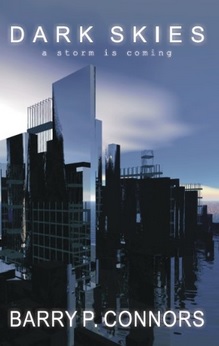
A post apocalyptic action adventure novel. “It was supposed to change the world. A technology far beyond anything mankind had developed before. A way to change things, to make them better. But when a war threatens to destroy our way of life, and the Apocalypse looms on the distant horizon, it becomes something more. A chance to survive. To live on. It’s called Gravity. And it’s our only hope…”
Pale Grey by Barry P. Connors, a sci fi noir novel, set in a dystopian
future about a man with nothing left to lose, in a world on the edge of madness.
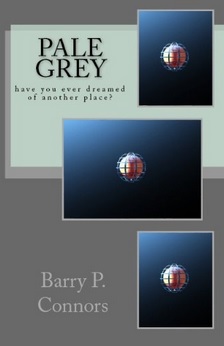
From Pale Grey’s Prologue: “The camera pans, taking in the City at ground level. Street lamps burning, hissing in the downpour. All is ensconced in a fine mist, and at this level the city seems almost insubstantial, ethereal. Like a place you go to when you dream, or one seen through the dusty lens of ancient memory. Misty and pale, a haze of muted colour and faded contours.”
Poetically Ghetto by Nthepa Martha Moitsheki and her debut novel “Epistles from my township.”
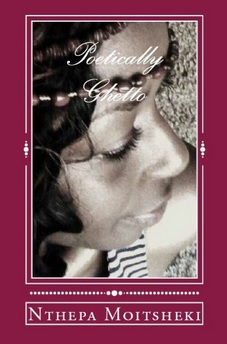
Nthepa’s debut anthology is a mirror of the township in the modern day and reflects the life that continues to carry history with it. It is a walk through the dusty streets of the township, breaking through the doors that separate the township man from the outside world. In the twenty first century where we are all to be equally benefiting from the fruits of democracy, the township folks still lag behind.
“Each beat of my heart is a salutation to your persistent bravery… My township – you are my undefeated warrior!”
“More than this” an anthology of poetry by Ruqshaana Kamish.
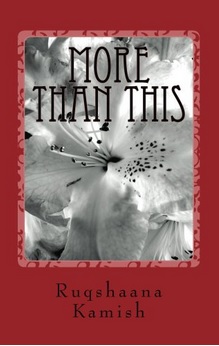
Amidst the trials and tribulations of life Ruqshaana Kamish seeks to find true meaning in everyday events often overlooked by others yet alive to her in the myriad possible meanings that lurk beneath the surface of life’s tapestry. “Within beauty so profound, it swallows your soul, and takes you away, on the wings of birds, the detail in life’s pleasures strikes fear in the heart of a skeptic but alas provides solace to the soul of the common man…”
Voice in the Wilderness by Mario Alex Faulmann, an anthology of poetry chronicling one man’s journey through life.

From Voice in the Wilderness:
My echo bounced from the rising mountain peaks
I cried out again
And the echo continued its fruitless ricochet
Only these mountains could help me
As I the right path continued to seek
But there they ominously stood
Oblivious to the battle that within me lay
On Solid Ground by Gabrielle Lubowski, the true story of a brave woman’s journey to wholeness after losing her iconic husband.
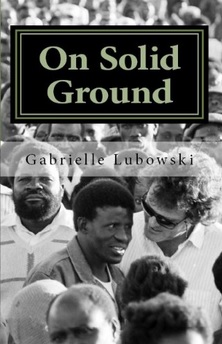
“And yet, no one ever smiled more easily. It was a memorable smile, big, broad and frank, expressive of interest and affection. It was the secret of his enormous charm. He was very tall and strikingly handsome, with an untidy but, somehow, always distinguished mane of hair. He looked like a millionaire or, I often thought, a Polish count; the Lubowski family emigrated from Poland to Namibia at the turn of the century.”
From Nthepa Moitsheki’s upcoming book Epistles from my township:
“The bond between mother and child is an inexplicable marvel; one that even the intelligentsia fails to put in words. Hell breaks loose when that same unfathomable cord snaps and a mother’s soul crumbles to dust. The worry of a child’s separation from the warm womb that nurtured it torments the back of her mind and keeps her awake even in the depth of her sleep. I regret the day I stood back and watched her leave without raising a halt. I rue the very day that I fed myself the delusion that her tantrums would once again find rest and that she would return. A pang of remorse reminds me of the pride that turned out to be detrimental to my own sanity. It was me who let the cord slip through my careless fingers; I let it go. I took a dive into the deep end of my own doings and now I’m sinking to the bottom like a stone. The devils of my guilt have built a monument of agony in honor of my misdeeds.”